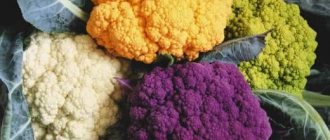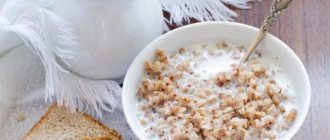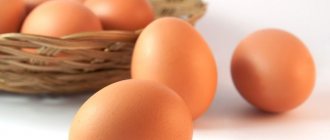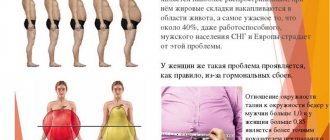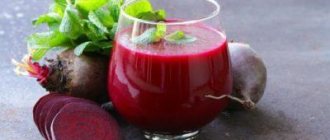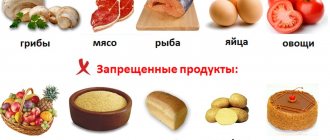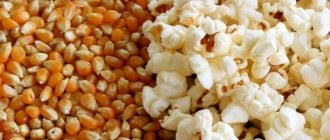Reads: 171
Reading time: 7 min.
no comments
In the modern world, staying slim is extremely difficult. One of the reasons why people begin to gain weight is the mass of temptations in the form of extremely harmful, but so tempting food. Ask anyone why they get fat, and 90% of respondents will answer you that the reason for their fatness is the insatiable consumption of “fast food” and sweets. The remaining 10% will cite heredity or hormonal diseases. Why do women and men actually get fat, and how can you avoid getting fat and at the same time overcome the feeling of hunger?
Why do people get fat
From a medical point of view, the main reasons why people get fat are:
- improper metabolism;
- fluid retention in the body;
- diseases of the gastrointestinal tract.
There are more and more fat people on the streets of our cities, and this is happening because the pace of life has increased - people have no time. There is no time to eat normally, but there is time to throw in a bun or something else equally refined and fill it with, for example, cola, or even cleaner - an energy drink.
Sugar, or rather glucose, is the most important source of energy for our body. As soon as glucose enters the blood, the pancreas secretes the hormone insulin, which combines with glucose and carries it throughout the cells, thereby delivering energy to them. Some of the glucose is converted into fats and muscle tissue. Its level in the blood must also be sufficient to nourish the brain. That is why, in order to quickly restore strength after, for example, a workout or a hard climb up a mountain, doctors recommend eating a piece of sugar, chocolate, a spoonful of honey, etc. By the way, no one will get fat from this sugar - it will be used to restore expended energy.
So why do people get fat from sweets and starchy foods? When another portion of sugar enters the body (sugar, honey, cake, white dough, candied nuts, chips, cola and other lemonade, juice from a bag, etc., etc.), the level of glucose in the blood immediately increases sharply (the same sugar after digestion and absorption in the small intestine). In response to this, insulin is released from the pancreas, the first action of which is to send the incoming glucose from the blood into the cells of the body, primarily into the muscle cells, where the glucose is actually “burned” as the main fuel. As a result, after about half an hour, the glucose level will decrease again, and sharply. Then two options are possible: either it will come from the outside with the next portion of food, or it will be mobilized from internal reserves, which we always have ready in the liver and muscles in the form of glycogen - the same glucose, but packaged in polymer molecules. Another pancreatic hormone, glucagon, is needed to unpack and release glucose from glycogen.
It is known that nerve cells also need glucose, without which they cannot live even 10 seconds. They do not need insulin to absorb this substance. That is why factors regulating sugar levels mainly counteract hypoglycemia - reduced blood sugar (50 mg/100 ml and below).
Unfortunately, an incorrect diet (sweet carbonated drinks, buns, chocolates...) leads to disruption of this coordinated regulation. Why do people gain weight by eating foods high in sugar? The fact is that for the harmonious functioning of all pancreatic hormones, there must be a sufficient amount of protein, which is clearly not enough in cakes, coffee, Pepsi and chips. In other words, if a large amount of glucose enters the body at once, without protein accompaniment, then insulin will be released from the islet part of the pancreas into the blood, which quickly “scatters” the incoming glucose into muscle cells and fat cells, bypassing the nervous tissue. A condition called reactive hypoglycemia will occur. You can easily feel this by overeating on sweets on an empty stomach. At first it will be very tasty, but then it may not be very good: weakness, decreased physical and mental performance, and most importantly, a sharply increased appetite.
You got injured
A musculoskeletal condition that causes pain can lead to decreased physical activity, which can lead to weight gain over time, especially if you eat the same amount you ate when you were more active.
Solution
It goes without saying that you don't want to exercise when you're experiencing joint pain. But on the other hand, exercise can relieve some of the symptoms of arthritis. For example, walking, cycling or swimming are gentle on the joints and can provide the required level of physical activity.
What else makes you fat?
Another reason for being overweight is constant snacking on unhealthy foods. If you snack on buns with Pepsi, Mars and Snickers about every hour, the level of glucose in the blood consistently increases, followed by insulin, again at intervals of an hour and a half. However, the functions of insulin are not limited to sending glucose to muscle cells and adipose tissue. And having pumped, for example, muscle cells with glucose, insulin continues to track their fate inside the cells.
And in fact, what to do if the glucose is not “burned” completely, for example, due to insufficient muscle load (and this is not uncommon nowadays!)? Then it must be sent for longer storage. And here there are two possible options. Either the glucose will be packaged in the form of a glycogen polymer, from which glucose can be re-produced as needed, or the glucose will be converted (irreversibly!) into fats. The latter process is called lipogenesis (fat synthesis); with hourly food intake, this leads to excessive synthesis of fats from carbohydrates, which is what this effect of hyperinsulinemia boils down to. In fact, we are one step away from almost inevitable obesity. By the way, just like sugar, that is, by releasing insulin, the pancreas can react to alcohol, which is why those who drink beer every day get fat (and not from any special calorie content of beer. Don’t believe me? Read on the beer bottle how much is in beer calories - very few, honestly!).
And what happens next is already more or less known.
Obesity leads to a progressive decrease in tissue sensitivity to insulin - the so-called insulin resistance - and now we are one step away from type 2 diabetes mellitus, a disease that in the modern civilized world is becoming a pandemic.
Further, increased fat synthesis leads to an increase in the blood content of so-called very low-density lipoproteins - fat-protein particles in the blood with an increased content of the fat component - one of the main risk factors for the initial stages of atherosclerosis, another “disease of civilization”. The list of diseases associated with obesity could be continued, but I think this is more than enough.
Fat burning cocktails
Such drinks can be prepared from ordinary products sold in stores:
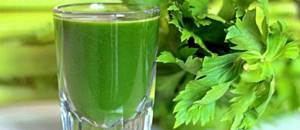
Cocktail of carrots, parsley, celery and spinach:
- two medium carrots;
- a small bunch of parsley;
- one stalk of celery;
- handful of spinach leaves
We chop all the vegetables and prepare the juice in a juicer. It turns out one glass is a daily portion of a fat burner.
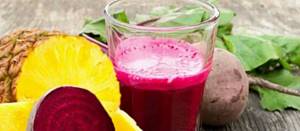
Strawberry, beetroot, ginger and pineapple drink:
- two handfuls of strawberries;
- medium-sized beets;
- a piece of ginger the size of the knuckle of your thumb;
- a third of a medium sized pineapple
We chop everything, squeeze out the juice and drink in small sips.
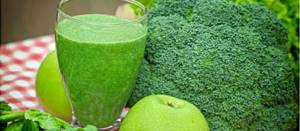
Cocktail of broccoli, parsley, green apple and pineapple:
- a third of pineapple;
- a bunch of parsley or watercress;
- several florets of broccoli;
- big green apple
Pass the finely chopped ingredients through a juicer. It turns out to be a glass of thick drink. You can drink it in small sips or eat it with a spoon, as the consistency is quite thick.
In the given recipes, the ingredients are selected in such a way that they enhance each other’s effect several times.
Regular consumption of such cocktails will help get rid of fat deposits and enrich the body with vitamins.
How to eat so as not to gain weight
What needs to be done so as not to gain weight, and the kilograms lost with such difficulty do not stick back? If you trained, played sports or rode a bike to lose weight, you will have to suffer hunger for about an hour and a half to two hours after training - let the body restore the expended energy on its own from the reserves that you have accumulated and are trying to lose.
If you are healthy, then your body will cope with this task, although at first it will not be easy for it. The fact is that the pancreas secretes not only insulin, but also glucagon - a hormone that is, as it were, an “antagonist” of insulin: it “extracts” glucose from glycogen (the same glucose, but as if “packed”, which is in our cells). If your body requires glucose, and you don’t give it to it, glucagon comes to the rescue: it produces glucose from your reserves, and you lose weight.
So what should we do? Well, at a minimum, do not gain weight, and to do this, do not allow a constantly elevated level of insulin in the blood - hyperinsulinemia, which leads not only to the conversion of glucose into fat, but also inhibits the use of fat as an energy material. It turns out that all you need to do is simply take 3-4 hour breaks between meals. That is, follow the same three meals a day diet. It would seem that what could be simpler! But modern dietary innovations have erased the tradition from our consciousness to such an extent that this “as old as time” sequence of meals now has to be supported by strict biochemical calculations.
No problem, let’s back it up: insulin has a strictly cyclical nature of action, which in a simplified form can be divided into three stages:
- transport of glucose into somatic cells;
- synthesis of fats from the same glucose that did not have time to “burn”;
- division of somatic cells, or mitosis.
So, the action cycle of insulin is exactly those 3-4 hours. In other words, the traditional three-a-day diet simply reflects this three-step, three-hour cycle of insulin action. Moreover, for the full implementation of all stages of the physiologically normal action of insulin in response to food intake, each meal must include proteins, fats and carbohydrates, since under the control, including insulin, the consistent use of all these food components is carried out for energy and building body needs.
How to eat so as not to gain weight and not feel a constant feeling of hunger? If your heredity is in order, then when you return to three or even two meals a day, the homeostatic mechanisms of returning to normal body weight will not take long to occur. And of course, don’t drink alcohol several times a week, don’t eat simple carbohydrates (sugar, white dough) at night, but eat them (if you really want to) after training. If you eat foods rich in fiber, such as fresh vegetables and dry cereals, you can eat them more often - fiber makes you feel full and slows down the release of insulin.
Here are three basic recommendations on how not to gain weight and always stay in shape:
- Improve metabolism;
- Establish fluid circulation;
- Improve the functioning of the gastrointestinal tract.
How to eat properly so as not to gain weight and improve (and if you have problems with excess weight, then speed up) your metabolism?
To do this you need:
- give up fast food;
- give up sugary drinks;
- drink plenty of water, especially in the morning.
We completely and forever give up all sweet (that is, those containing sugar) drinks, including cola and lemonade, factory juices (freshly squeezed ones are possible and necessary), tea and coffee with sugar (no sugar is allowed), sweet and semi-sweet wines etc.
Do you really want wine? Drink dry, and champagne is generally Brut. Juice? Squeeze or eat the fruit (it’s better - there’s more fiber for the same amount of glucose). And no, please, bottled tea and other forfeits and stakes! If you are extremely used to it, then only diet drinks, silver colas and drinks for athletes (to lose weight), but it’s better not to use them either - they slow down your metabolism.
0 Comments
What to drink green tea with
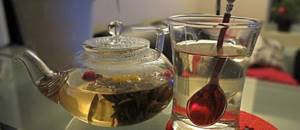
For the warmer months, green tea with lemon is an excellent fat burner. The catechins and flavonoids contained in it stimulate blood circulation and metabolism. This effect is enhanced by adding vitamin C contained in lemon to tea.
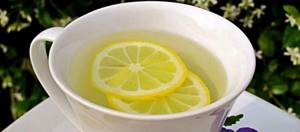
To burn fat, you need to know how to properly brew and drink green tea with lemon:
- Pour the tea leaves not with boiling water, but with hot water at a temperature of no higher than 80 degrees. Brewing time is 3-5 seconds;
- high-quality varieties of green tea can be brewed up to 3-5 times, but the most useful in terms of fat burning is the second brew;
- Lemon should not be placed in boiling water, but in already cooled tea
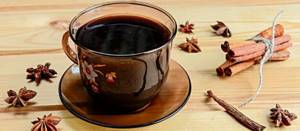
Another drink that promotes weight loss is cinnamon coffee. Cinnamon increases metabolism in the same way as caffeine. According to experts, coffee with cinnamon is more of a warming drink. It is more appropriate in winter.
Recipe:
- glass of water;
- cinnamon stick;
- 1-2 peas of black pepper and clove stars;
- 2-3 teaspoons natural ground coffee
Over low heat, bring water with coffee powder to a boil, add cinnamon, cloves and pepper. After boiling, you need to remove the Turk from the heat, wait a little and bring to a boil again. Repeat the procedure 2-3 times.
If coffee and tea are contraindicated for you, you can use other recipes below, where the combination of ingredients has the maximum fat-burning effect.
